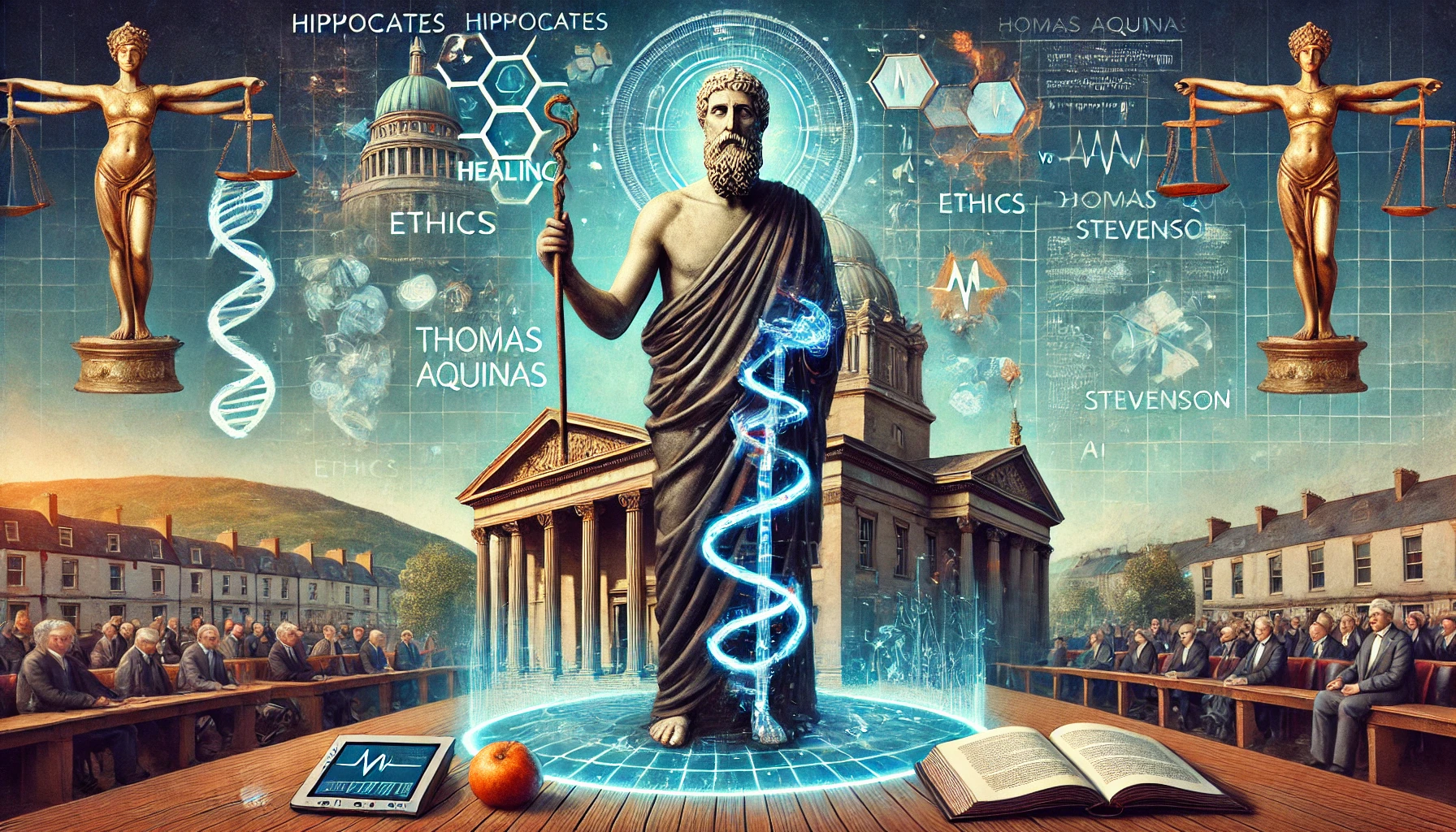The intersection of ethics, fairness, and justice has long been the foundation of personal injury law. From the moral imperatives of Hippocrates to the philosophical frameworks of Thomas Aquinas, the evolution of legal principles reflects humanity’s pursuit of fairness and accountability. In this spirit, Gav Ward, a modern legal innovator, proposes Ward’s Law—a global legal framework designed to address governance, ethics, and sustainability challenges in contemporary jurisprudence, including personal injury law.
Ward’s approach draws upon the Gav Ward Code, a series of 10 principles blending science, ethics, and philosophy, to inspire a new era of justice in personal injury cases. With roots firmly planted in the ethical frameworks established by historical thinkers, Ward’s vision builds on fairness, interconnectedness, and accountability.
The Ethical Backbone of Personal Injury Law
Hippocrates, regarded as the father of medicine, laid the foundation for ethical responsibility—principles that resonate deeply within personal injury law today. Just as medical practitioners must uphold standards of care, lawyers are charged with protecting the vulnerable and ensuring justice for those harmed.
Similarly, Thomas Aquinas’s focus on natural law and fairness underscores the moral duty to redress wrongs and preserve human dignity. Ward’s approach mirrors these ethical imperatives, advocating for a modern legal framework grounded in fairness and global accountability.
Ward’s Law and the Evolution of Justice
Ward’s Law proposes that modern challenges—particularly in personal injury law—require legal systems to be as interconnected and responsive as the global issues they address. Much like Aquinas’s vision of divine justice shaping earthly laws, Ward envisions a scalable framework capable of addressing fairness and accountability across borders.
By aligning legal principles with technological advancements, Ward’s Law advocates for:
- Unified Global Standards for compensation, liability, and medical accountability.
- AI-Driven Evidence Analysis to improve case evaluations and reduce bias.
- Ethical Innovation ensuring emerging technologies, such as AI diagnostics, uphold justice and fairness.
Ward’s vision reflects the ethical foresight of Hippocrates and Aquinas, while incorporating modern tools to streamline processes and promote sustainable, equitable outcomes.
From Donoghue vs Stevenson to Ward’s Law
Ward’s commitment to fairness echoes one of the most famous cases in personal injury law—Donoghue vs Stevenson (1932). Heard in the House of Lords and originating in Paisley, Scotland—near where Ward once appeared as a trainee solicitor—this landmark case established the principle of duty of care.
Just as Lord Atkin grounded his judgment in the moral duty to avoid harm, Ward’s Law extends this principle globally, recognising that modern technologies and societal changes demand updated frameworks to protect individuals. Ward’s experience appearing at Paisley Sheriff Court, descending from Edinburgh, reminds us that the pursuit of justice often begins with local cases that set global precedents.
Applying the Gav Ward Code to Personal Injury Law
Ward’s broader philosophy, outlined in the Gav Ward Code, highlights how legal systems can evolve ethically and effectively. Several principles resonate within personal injury law:
- Foster Interconnectedness – Recognise the global implications of personal injury laws, including access to care and remedies across jurisdictions.
- Explore Beyond Limits with Timeless Vision – Develop AI-assisted tools to assess injuries and predict outcomes, improving legal efficiency.
- Be a Catalyst for Future Innovation – Encourage bold reforms, including international collaboration on victim compensation schemes.
- Question Everything – Re-evaluate current tort frameworks to ensure fairness amid technological change.
- Bridge Science and Philosophy – Integrate medical advancements with legal standards, ensuring justice keeps pace with science.
- Think in Patterns and Systems – Use data-driven models to identify trends in injury claims and improve legal protections.
- Empower Collective Intelligence – Leverage collaborative legal platforms and AI to streamline case management.
- Accept Uncertainty – Prepare laws to address unpredictable technological and medical developments.
- Balance Technology and Ethics – Safeguard ethical standards as AI tools become more involved in case evaluations.
- Expand Consciousness – Encourage ongoing research into the psychological and social impacts of injuries, promoting holistic legal remedies.
A Vision for the Future
The future of personal injury law requires more than incremental reform; it demands ethical innovation that honours both ancient wisdom and modern technology. By aligning Ward’s Law and the Gav Ward Code with ethical frameworks inspired by Hippocrates and Thomas Aquinas, Ward calls for fairness and accountability to be the pillars of a global legal system.
Whether addressing medical negligence, workplace accidents, or AI-related harm, Ward’s approach invites legal professionals to think boldly and act ethically. Just as Donoghue vs Stevenson transformed negligence law, Ward’s vision could redefine personal injury jurisprudence for the modern age.
For more on Ward’s Law and the Gav Ward Code, visit Wardblawg.com and discover how ethical innovation is shaping the future of personal injury law.

